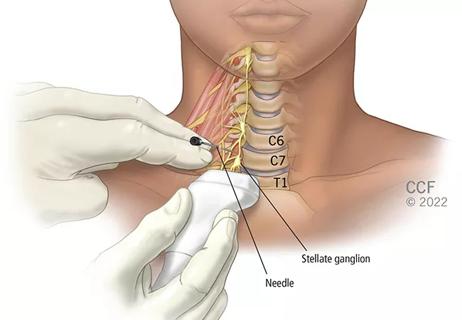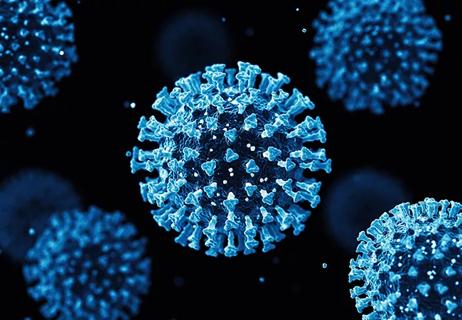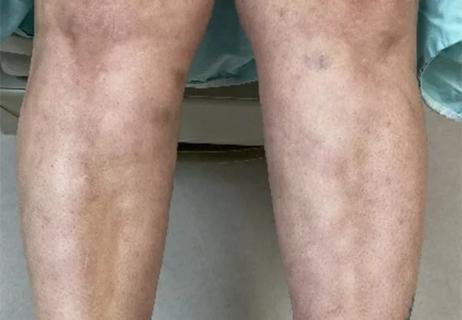Mitigating the risk requires physicians to take an active role in the care of patients with obesity

Soon after COVID-19 became entrenched in the population, it became apparent that certain individuals were at greater risk for serious or fatal outcomes from the disease than others. Patients with obesity, and particularly those with severe obesity, were among those faring the worst. In one study, patients with a body mass index (BMI) of 30 or higher were found to be at significantly increased risk for severe COVID-19, and those with a BMI of 35 and higher had a dramatically increased risk of death. Another found severe obesity to be a profound risk factor for death from COVID-19 in men age 60 and younger. Meta-analyses confirmed these findings.
Advertisement
Cleveland Clinic is a non-profit academic medical center. Advertising on our site helps support our mission. We do not endorse non-Cleveland Clinic products or services. Policy
With no cure for the virus in sight and the prospect of a vaccine still months away, it is more important than ever for physicians to keep a close eye on patients with obesity, says Ali Aminian, MD, Director of the Bariatric & Metabolic Institute at Cleveland Clinic.
“Discontinuity of care may lead to weight gain in this unprecedented time,” he says. “Ideally, there should be no interruption in behavioral support or medical treatment of obesity. Plans for bariatric surgery should move ahead.”
A unique feature of SARS-CoV-2 infection is the wide spectrum of presentation. Some infected individuals remain asymptomatic or experience only mild symptoms. Others, including those with obesity, are prone to developing serious illness and succumbing to the disease.
“In the past six months we have learned that obesity is a risk factor for the severe form of COVID-19 and associated hospital admission, need for intensive care, use of vasopressors and ventilator support, and increased mortality,” says Dr. Aminian.
Why patients with obesity are seriously impacted by SARS-CoV-2 is unknown, but Dr. Aminian offers several explanations.
Advertisement
To decrease the risk of COVID-19, physicians should make sure patients with obesity understand their excess risk and the need to take precautions.
“This pandemic has shown how patients with obesity, particularly severe obesity, are vulnerable to infection with the virus,” he says. “It is important these individuals follow public health recommendations for masking, social distancing and handwashing.”
Making a habit of self-protection practices may be a lifesaver in the long run. While the world looks forward to being freed from COVID-19 constraints by a vaccine, patients with obesity may not enjoy the same protection.
“Previous experience has shown that patients with obesity may not have an adequate immunological response after vaccination. This may present a challenge for them when a COVID-19 vaccine is developed,” says Dr. Aminian.
Bariatric and metabolic surgery, which provides substantial and sustained weight loss, may be the best—if not only—long-term solution.
“We do not know if there is a cutoff weight at which risk of COVID-19 drops dramatically. We do know that when patients with obesity lose at least 5% to 10% of their weight, their risk of cardiovascular disease drops and survival improves. Patients will be healthier after losing a large amount of their excess weight,” he explains.
“We suggest patients with obesity consider weight-loss surgery. But for now, in this stage of the pandemic, our advice is that physicians, dietitians and other health care providers stay in touch with their patients to ensure their weight-loss efforts remain on track and emphasize their need to take extra precautions to prevent coronavirus exposure.”
Advertisement
Advertisement

Patients report improved sense of smell and taste

Clinicians who are accustomed to uncertainty can do well by patients

Unique skin changes can occur after infection or vaccine

Cleveland Clinic analysis suggests that obtaining care for the virus might reveal a previously undiagnosed condition

As the pandemic evolves, rheumatologists must continue to be mindful of most vulnerable patients

Early results suggest positive outcomes from COVID-19 PrEP treatment

Could the virus have caused the condition or triggered previously undiagnosed disease?

Five categories of cutaneous abnormalities are associated with COVID-19